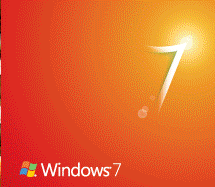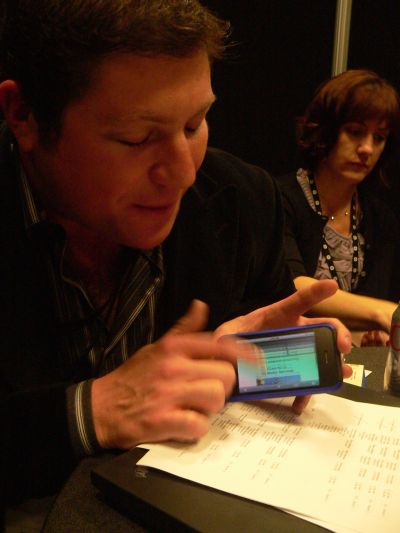
Microsoft's Bob Muglia and Ray Ozzie on Silverlight vs. standards
Last week at Microsoft's Professional Developers' Conference, Betanews had the honor of being invited to join a small cadre of reporters -- including noted blogger Long Zheng; TechCrunch's Steve Gillmor; and our good friend from SD Times and Technologizer, David Worthington -- for a luncheon with Microsoft's President of Server and Tools, Bob Muglia; and Chief Software Architect Ray Ozzie. There, we discussed a handful of topics -- some of their comments were candid and off the record, and some were for the record.
The first issue on our plate Tuesday afternoon concerned Silverlight, and Microsoft's continuing efforts to entice developers to build Web sites around a platform that is not considered a "standard," and perhaps never will be. Some developers discount Adobe Flash as a "standard" for the same reason; while others suggest that Flash's ubiquity renders it a de facto standard.
The questions for Web developers have centered around whether they can afford to evolve any portion of their forward-facing online assets around a proprietary standard (around Silverlight) and still have it be on "the Web," whose values are based around platform neutrality. Those questions do seem a bit more pronounced for Microsoft than for other platform developers. But how should Microsoft handle the delicate issue of developing for a platform that's "ours" versus one that is "yours?" (And what's the difference really?)

Uh-oh, netbooks -- not Windows 7 -- will lift 2009 PC sales
Gartner is just full of bad news that will suck Windows PC manufacturers' thanks out of American Thanksgiving -- and Christmas along with it. Ho Ho Ho Ba Humbug. Today, the analyst firm predicted that based on fourth-quarter PC shipment estimates, for 2009, the market would grow -- but not because of Windows 7 -- and with deep declines in average selling prices. Combined, the latter two predictions spell lower profits for Windows PC OEMs and potentially overshipment of PCs for holiday 2009.
"We just don't see consumers buying new PCs solely because of Windows 7," Gartner research director George Shiffler said in a statement. "We are expecting a modest bump in fourth-quarter consumer demand as vendors promote new Windows 7-based PCs, but the attraction will be the new PCs, not Windows 7."

Microsoft's .NET Micro Framework is now free and open source
Microsoft announced at its Professional Developer Conference on Tuesday the release of version 4.0 under the Apache 2.0 license. The license transfer makes good on a longstanding promise from Redmond that it would make the popular .NET code base available as open source.
The gift to the open source community, however, does come with some strings attached -- or, rather, removed from the gift wrapping. Microsoft reduced some of the framework's functionality in making the Software Developer's Kit open source, according to Peter Galli, the Open Source Community Manager for Microsoft's Platform Strategy Group. In his blog post last Tuesday, Galli revealed details about the code release.

Google's value proposition for Chrome OS: Should we feel insulted?
Let's be absolutely honest and straightforward about this right up front: Google Chrome OS is not an operating system. It's a device, like the iPhone, only that Google wants to license its specifications to OEMs. Any OEM that builds it is making a Chrome device, whose profile will be so low that it could probably never be switched out to run Windows, even XP. Probably great connectivity, but not enough solid-state storage to manage local documents or store many media files.
More than an Android device, less than a Windows device.

10 things about Microsoft's PDC 2009: The good, the bad and the ugly
Microsoft's 2009 developer conference wrapped up yesterday in Los Angeles. Not since PDC 2003 has Microsoft talked so much and said so little. As I listened to the keynotes and have reviewed the sessions, words "series finale" repeatedly popped into my head -- like a TV show coming to its end after a long run. Good or bad for Microsoft, a computing era is ending. Perhaps PDC 2009 demarcates the transition.
PDC 2003 was memorable for demos that wooed but seemed insubstantial. Within weeks after that developer conference, I began telling my clients (I was a senior analyst for JupiterResearch then) to expect Microsoft to delay Windows Longhorn sometime in early 2004. The delay came, followed by several others, as Microsoft dumped features to get Windows Vista out the door -- late -- missing holiday 2006.

E-book readers will be in short supply this holiday season
Black Friday is just a week away and the demand for ebook readers looks to already be too great.
Earlier this week, Sony said its 3G-connected Daily Edition Reader may not arrive in time for the holidays. Preorders for the device began on Wednesday, but it will not ship until some time between December 18th and January 7th, and it is not expected to land in stores until after the holidays.

Sony looks to finally open a single storefront for downloads
Sony yesterday discussed its plans to open a download shop similar to iTunes or Amazon Digital Downloads.
Reportedly given the tentative name "Sony Online Service," the online store would make the many different types of Sony digital content available in a single place. The company has a number of content portals already, but each is geared toward a related piece of hardware and run by a different business unit of the giant Sony conglomerate.

Tuning out the tablet: Time to give the endless speculation a rest
I'm sure I'm not the only one who looks at renderings of Apple's long-rumored tablet - or iTablet, or whatever name the faithful have assigned to it this week - and wishes the FedEx truck would pull up to my door with an early demo in time for the holiday season. I'm sure I'm also not the only one who's ready for the endless speculation to, well, end.
I don't think I've ever seen an unreleased product generate so much discussion without so much as a peep from the vendor of record. I realize the frenzied speculation is as frenzied as it is because we're talking about Apple, and that if this were any other company, we'd collectively yawn our response before moving on to the next big thing. This is a company that seems unique in its ability to generate so much activity around what is, for now at least, vapourware. And while I appreciate the value of healthy exchanges in advance of a major product launch, I can't shake the feeling that the never-ending iTablet fever is just a little much, and that we'd all be doing ourselves a favor by giving it a rest and waiting until Apple actually ships a working product.

Five improvements for IT managers in 2010
Every year around this time, everyone from antimalware companies to analyst firms line up to tell us about the top IT and security trends -- what they are and why we should care. This year, chances are they'll tell us all about cloud computing, virtualization, and social networking, and why these technologies are the new best (or worst) friends for security folks in 2010.
Now if you're sensing a bit of snarkiness here, you're right -- I find these lists a bit frustrating. That's not because of inaccuracies in the lists themselves (to the contrary, many of them are dead-on), but instead because they sometimes inappropriately drive how IT managers make budgeting decisions. Don't get me wrong, keeping abreast of the new areas is always valuable -- and I'm always fully on board with keeping us and our staff up to date and capable of reacting to new types of threats. But it's also important to keep in mind that what's new isn't always what's most critical. Where should you be investing budget dollars? At critical areas, not just what's new and shiny.

PDC 2009: What have we learned this week?
It ended up being a somewhat different PDC conference than we had anticipated, and even to a certain extent, than we were led to believe. Maybe this was due in part to a little intentional misdirection to help generate surprise, but in the end, the big stories here in Los Angeles this week were more evolutionary than revolutionary. That was actually quite all right with attendees I spoke with this week, most of whom are just fine with one less thing to turn their worlds upside down. It's tough enough for many of these good people to hold onto their jobs every week.
We'll start our conference wrap-up with a look at the flashpoints (remind me to call Score Productions for a jingle to go with that) we talked about at the beginning of the week, and we'll follow up with the topic that crept in under the radar when we weren't expecting.

Live report: Will Google Chrome OS change Linux?
Google announced its open source Chrome OS last July and it has been a little more than a mystery to the wondering public since that time. Now, an official first look is mere hours away.
At 10:00 am PST (1:00 pm EST), Google will present a live webcast of Chrome OS, the search giant's attempt to "rethink what operating systems should be." Speakers this afternoon will include Sundar Pichai, Vice President of Product Management and Matthew Papakipos, Engineering Director for Google Chrome OS.

AOL's spinoff from Time Warner to shed 2,500 jobs
As Time Warner continues the process of spinning AOL off into a separate, independent company, AOL will lose a third of its workforce. The spinoff is expected to be completed on December 9. In filings with the Securities and Exchange commission earlier this month, Time Warner said the split will cost more than $200 million in restructuring charges.
Today, AOL has reportedly instituted a voluntary layoff program, asking for 2,500 employees to give up their jobs in exchange for severance packages. If this number cannot be reached, AOL will begin laying off people anyway. The soon-to-be spun off company is looking to reduce its operating expenses by $300 million.

PDC 2009: Microsoft cares about Web browser performance
I know when I've hurt a man's feelings. In a segment of the technology business that has recently become fiercely competitive, it's difficult to report bad news about a team that tries very hard to build a good Web browser. It was very apparent from our interview today at PDC 2009 in Los Angeles that Microsoft Internet Explorer General Manager Dean Hachamovitch has an emotional and personal investment in the product he's building.
"If I had a script engine that was twice as fast as the one before, the Web should be twice as fast," said Hatchamovitch today. "But if JavaScript is 10 percent of my site, at most, I'll shave 5 percent off; and if the site was 1.8 seconds, yea, I'm not going to be able to tell...Yes, we understand that there's a microscope on JavaScript performance. We've made progress on JavaScript performance -- we're all in the same neighborhood now."

Nokia re-affirms its commitment to Symbian, sort of
Nokia has always been solid on its dedication to the Symbian platform, but a report from an N900 event yesterday cast some doubt on Symbian's future in certain branches of Nokia's product line, specifically the high-end N-series of smartphones.
I reached out to Nokia to find out exactly what is going on with Maemo and Symbian in the N-series, and received equal parts affirmation and denial.

Gartner: SMS-based money transfer will be bigger than mobile browsing, search
Technology market research company Gartner Inc. has released a report which predicts what the top ten mobile applications will be in 2012 based on current activity in the smartphone field, including such factors as consumer and industry interest, potential revenue, and existing business models.
Based upon this information, Gartner predicts the number one "killer app" that everyone will have on their mobile device will be one that is currently uncommon in the United States, but available elsewhere in the world: Money Transfer.



